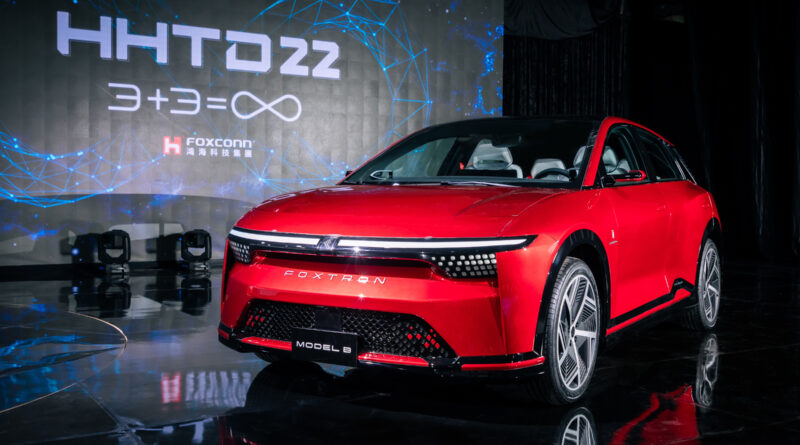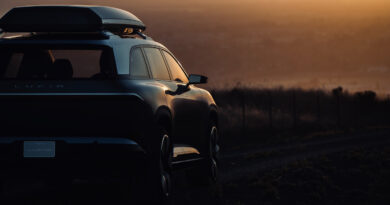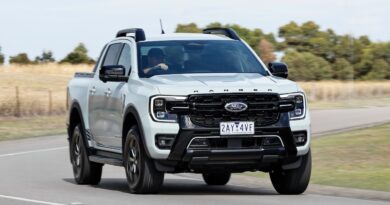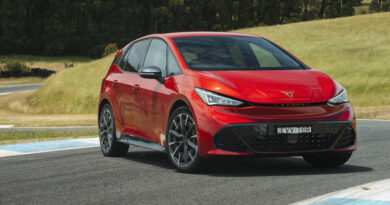Shock! iPhone maker to sell EV in Australia badged as a Mitsubishi. No, this is not April 1!
Taiwanese electronics giant Foxconn is reported to have locked in a deal with Mitsubishi to build an advanced all-new battery-powered compact SUV for Australia that will land in local dealerships in the first half of 2026.
Yes, you read that right. Multiple respected sources are reporting an EV developed by the company best known for making Apple iPhones will be sold in your local Mitsubishi dealer in Australia next year.
First shown by Foxconn in 2022 as the Foxtron – getting confusing this! – Model B (pictured top), the Aussie-bound EV is a 4.32m long high-riding hatch with exterior design by Pininfarina.
It will reportedly feature both single and dual motor powertrains with backing from a 60kWh battery pack that’s good for up to 500km range.
READ MORE: Taiwanese smartphone giant Foxconn reveals electric ute, global sales planned
READ MORE: Apple car preview? Foxconn debuts first Foxtron EV models
READ MORE: Foxconn buys Lordstown plant, will build Endurance pick-up
READ MORE: iPhone maker Foxconn’s ‘Android’ open-source EV platform
The deal with Mitsubishi, which covers New Zealand as well as Australia, is part of a Foxconn plan to apply its contract manufacturer business model to the automotive industry.
All up, Foxconn – or Hon Hai Technology Group – has revealed plans for no less than six battery-powered cars and buses it is ready to build on behalf of other car-makers.
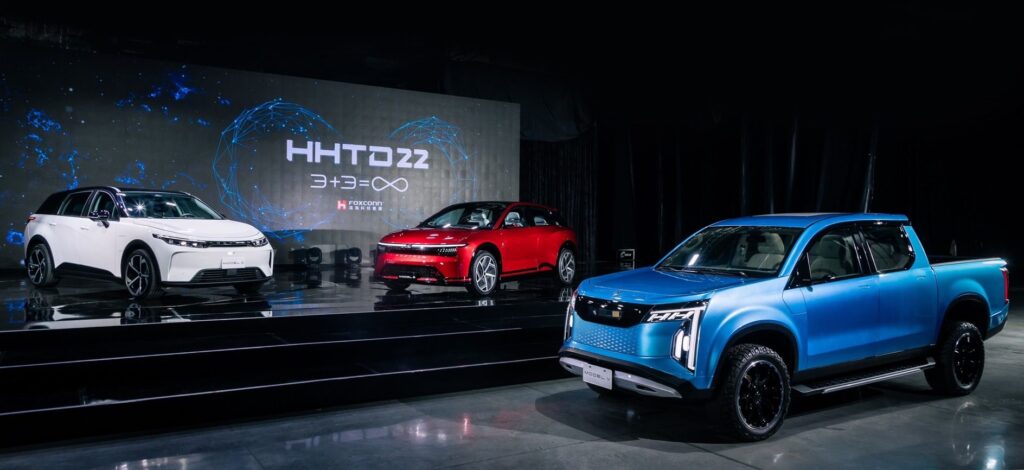
Speaking at a press conference in Tokyo yesterday (April 9), Foxconn executive Jun Seki told media it now has the toolbox to design and assemble a full range of EVs in different regions of the world, tailoring each model to its customer’s needs.
Seki explicitly stated the Model B would be on-sale in Australia in the first half of 2026 but did not name Mitsubishi as a client. Multiple Japanese media already had.
Mitsubishi Australia declined to comment on the reports, but did not issue a denial ether.
Foxconn rolled out plans for a Model B compact SUV-coupe, Model C mid-size SUV, Model D people-mover, Model E mid-size SUV-coupe and the Model A, which is a small cargo van.
It also revealed the Model T is a large bus, while the Model U is a minibus.
Missing from the line-up was Model V dual-cab ute revealed at the same time as the Model B in 2022.
Seki said all vehicles will benefit from Foxconn’s low-cost, high-quality manufacturing and ‘cutting-edge’ technology, says the tech giant.
First to arrive in the US in the fourth quarter of 2025 is the Model C that entered production back in late 2023 and is sold as the Luxgen N7.
Next to land in the first half of 2026 is the Australia-bound Model B compact SUV that is reportedly being built for Mitsubishi and could be positioned as a battery-electric replacement for the ancient 15-year-old ASX.
It will also deliver Mitsubishi’s Australian arm instant and much-needed NVES CO2 reduction scheme credits.
It’s understood all vehicles will be based on the same architecture and share similar components to share the high cost of development.
The Tesla Model Y-rival Model C is a mid-size SUV will come with the choice of a 58kWh battery that will provide for a 500km range (NEDC), or a larger 83kWh powerpack that will see the Foxconn cover up to 700km on a charge.
The rear-wheel drive versions will come with a single e-motor that produces 172kW and 340Nm of torque, while the flagship all-wheel variant knocks out 344kW and 680Nm of torque for a 0-100km/h dash of just 3.8 seconds.
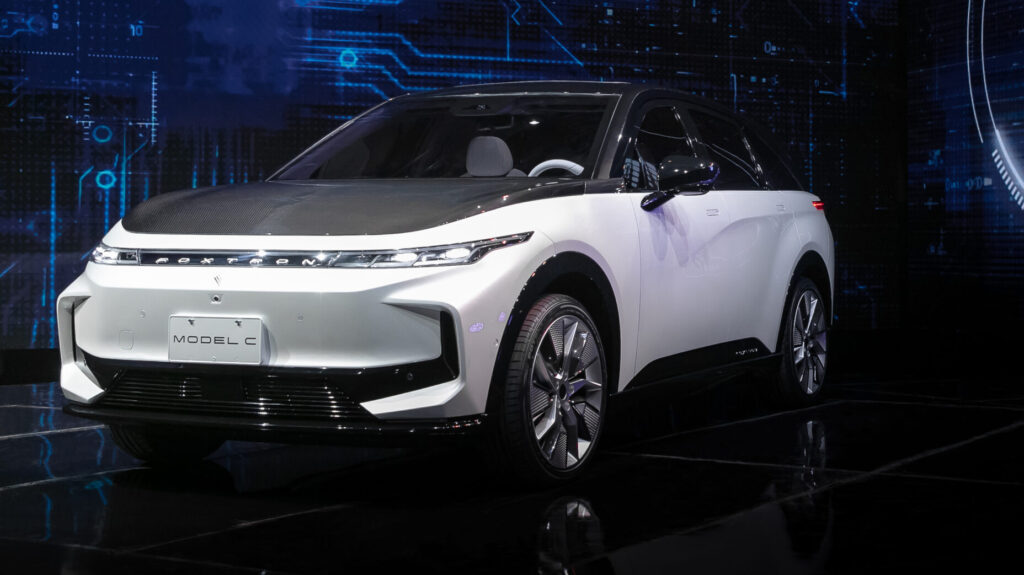
Advanced tech include an active air suspension.
Foxconn’s reported deal with Mitsubishi fuels fresh rumours that a tie-up with Nissan and Honda could be on the cards as the Taiwanese tech giant chases the production volume needed to make its new car division profitable.
Seki stressed Foxconn had no intention of being a car-maker in its own right, preferring a business-to-business model, not a business-to-consumer model.
Foxconn says it also wants to work with the broadest range of car-makers and does not want to compete directly with potential future clients.
Its previous forays have included a failed tie-up with the bankrupted US start-up Lordstown Motors, while its cars are already on-sale via the Taiwanese brand Luxgen.
- With Bruce Newton

